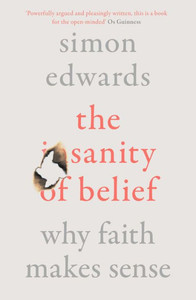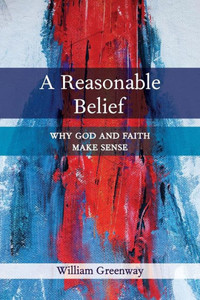
Making Belief: Speaking For A Natural, Intelligent, Outlandish Faith
CreateSpace Independent Publishing Platform
ISBN13:
9781545233559
$23.54
From the introduction to Making Belief Many smart people see alienation, struggle, and then eternal extinction as just how things are. To believe otherwise and keep being smart seem like mutually exclusive propositions. But we''ve all at times felt something-a richness, a satisfaction, a meaning-that runs deeper than Darwinism, materialism, and cynicism. In these moments, we suspect there''s more. This sense of what Wordsworth called "something far more deeply interfused" is hard to put into words. And hard to hang onto. It can be so fleeting that it seems like wishful thinking to believe it''s real. Surely, the mundane world of fluorescent lights, slow-moving traffic, and crushed dreams is what''s real. What if it''s the other way around? And what if believing that could help us amplify, expand, and extend what have thus far been fleeting glimpses? What if, instead of settling for scraps of satisfaction, we could start having sumptuous meals? But smart people need good reasons for believing-not nice ideas, dusty books, or finger-wagging authority figures. I used to think there weren''t any such good reasons. All evidence seemed to point to me being something like a puny turd floating in a vast cosmos. But the turd lived some more life-thought, felt, read, experienced. The turd became a butterfly. (OK, so the metaphor has some limitations.) Now I think there''s a lot of good reasons for believing. I just can''t put them in a headline, tweet, or sound-bite. I needed a whole book. * * * I admit, the case doesn''t look good. Science offers us dazzling technology but ignores the soul. Religion offers comforting stories but ignores the facts. Or so many believe. But science and religion have more in common than most realize. Beneath their superficial differences, they share a view of reality that pervades all of Western culture-our churches, universities, scientific theories, news agencies, magazines, books, websites, conversations, and even our thoughts. I call this way of seeing the "split view." Seeing the world this way is like driving a car. Both can be helpful and both seem natural. But they only seem natural because we''ve practiced them so much. We forget that we had to learn them. The split view divides existence into two categories: the pure, smart, or good vs the messy, dumb, or bad. Consciousness is alive, matter dead; the observer looks, the observed is looked at; the spirit is holy, the body sinful; God is on high, man fallen. Whatever''s in the good camp must always judging, fearing, or fighting whatever''s in the bad camp. Or at the very least, blogging about it. In other words, both religion and atheism bow to a kind of grandiose authority. Religion calls its authority God. Atheism doesn''t realize it has such an authority and so has not named it. Helpfully, I have. I call it The Great Intellectual Observer. The Great Intellectual Observer does a version of what only God used to do. For to vanquish an all-seeing, all-powerful being requires an equally powerful rival. To conclusively rule out God''s existence, science must believe it can see-and feel-into every nook and cranny of the universe, from the experience of the mystic, to the mind of an ant, to the inside of a black hole. Scientific atheism has not eliminated God. It has just replaced Him with God 2.0. Both science and religion have been given us tremendous gifts but not the whole story. For the split view gives us only the version of reality filtered through the premises we''ve accepted without question. Weaving together quantum physics, myth, sex, psychology, art, Jesus, Bigfoot, Keith Richards, and my own experience, this book questions those premises. It also offers alternatives. I believe these alternatives will resonate with something you already know but might have forgotten.
- | Author: Chris Dingman
- | Publisher: CreateSpace Independent Publishing Platform
- | Publication Date: Apr 11, 2017
- | Number of Pages: 412 pages
- | Language: English
- | Binding: Paperback
- | ISBN-10: 1545233551
- | ISBN-13: 9781545233559
- Author:
- Chris Dingman
- Publisher:
- CreateSpace Independent Publishing Platform
- Publication Date:
- Apr 11, 2017
- Number of pages:
- 412 pages
- Language:
- English
- Binding:
- Paperback
- ISBN-10:
- 1545233551
- ISBN-13:
- 9781545233559





